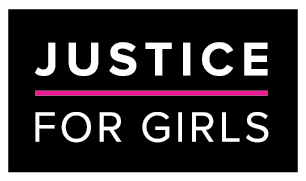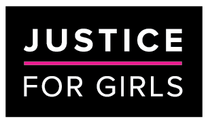Indigenous Rights & Environmental Justice
Justice for Girls has been fighting for the rights of Indigenous girls since our foundation in 1999, and approaches our work through an environmental justice lens.
JFG's work on Indigenous Rights and Environmental Justice is led by Zoe Craig-Sparrow (MA), a member of the Musqueam Indian Band, who has been involved with Justice for Girls since she was 12 years old. Zoe is passionate about girls' and women’s rights and the environment, particularly how those relate to Indigenous communities and travelled to the United Nations with JFG to present a submission to the UN Committee on the Rights of the Child in 2012.
Over the past 25 years, our advocacy has focused on the epidemic of violence, poverty, state apprehension, and over-criminalization of Indigenous teen girls. We have advocated domestically and internationally, initiating and playing a key role in the Human Rights Watch investigation of police abuses and failures to protect Indigenous girls in BC, and making submissions to the UN and Inter-American Commission on Human Rights inquiries into murdered and missing Indigenous women and girls in Canada. More recently, we have advocated for Indigenous land defenders against forced eviction, police violence and other human rights violations associated with fossil fuel development.
Justice for Girls has fought for environmental protection of girls human rights for over a decade, illuminating the specific and disproportionate harms of climate change and environmental destruction on the rights of teen girls. Justice for Girls has taken two delegations, including teen girls, to the UN Committee on the Rights of the Child to call for Canada’s action on climate change.
Justice for Girls is currently working in collaboration with the David Suzuki Foundation, University of London, UBC Faculty of Law, Houssian Foundation and Mitacs to research Indigenous rights and environmental justice. Annabel Webb and Zoe Craig Sparrow are working with JFG to document the specific and disproportionate human rights impacts of fossil fuel development on teen girls in BC.
JFG's work on Indigenous Rights and Environmental Justice is led by Zoe Craig-Sparrow (MA), a member of the Musqueam Indian Band, who has been involved with Justice for Girls since she was 12 years old. Zoe is passionate about girls' and women’s rights and the environment, particularly how those relate to Indigenous communities and travelled to the United Nations with JFG to present a submission to the UN Committee on the Rights of the Child in 2012.
Over the past 25 years, our advocacy has focused on the epidemic of violence, poverty, state apprehension, and over-criminalization of Indigenous teen girls. We have advocated domestically and internationally, initiating and playing a key role in the Human Rights Watch investigation of police abuses and failures to protect Indigenous girls in BC, and making submissions to the UN and Inter-American Commission on Human Rights inquiries into murdered and missing Indigenous women and girls in Canada. More recently, we have advocated for Indigenous land defenders against forced eviction, police violence and other human rights violations associated with fossil fuel development.
Justice for Girls has fought for environmental protection of girls human rights for over a decade, illuminating the specific and disproportionate harms of climate change and environmental destruction on the rights of teen girls. Justice for Girls has taken two delegations, including teen girls, to the UN Committee on the Rights of the Child to call for Canada’s action on climate change.
Justice for Girls is currently working in collaboration with the David Suzuki Foundation, University of London, UBC Faculty of Law, Houssian Foundation and Mitacs to research Indigenous rights and environmental justice. Annabel Webb and Zoe Craig Sparrow are working with JFG to document the specific and disproportionate human rights impacts of fossil fuel development on teen girls in BC.
|
Climate emergency
The climate crisis is an existential threat to children and future generations. In general, children face the worst consequences of the climate crises due to their physical, social and economic vulnerabilities and because they will live long enough to endure the worst impacts. Due to climate lag and the threat of runaway climate change, today’s climate policy decisions will seal the fate of generations to come. Climate change, ecological degradation, and loss of biodiversity disproportionately harms girls, especially Indigenous girls whose traditional territories are often the frontlines of environmental destruction. A broad spectrum of human rights are threatened. Domestically and around the world, girls’ human rights depend on a safe, healthy and sustainable environment. |
Ecocide-Genocide
Canada is a colonial country with a record of both historical and ongoing genocide against its Indigenous peoples. Colonisation, which includes environmental destruction of Indigenous territories, has resulted in a broad spectrum of human rights violations, including violence, suppression of Indigenous culture and identity, and social and economic inequalities that persist today. Indigenous girls disproportionately live in poverty and are subjected to genodical assault, rape and murder. Indigenous girls are also disproportionately exposed to degraded ecosystems and are gravely harmed by deforestation, contamination of drinking water, depletion of fish stocks, and environmental destruction due to resource extraction. The harms of genocide, colonial violence, and systemic racism are amplified by the climate crisis. Read about Indigenous Girls' Rights. |
Canada is home to the world’s largest, most carbon intensive and environmentally destructive fossil fuel project--the Alberta oil sands. Despite dire warnings of climate scientists and devastating health impacts on local Indigenous communities, Canada continues to support oil sands development. Canada has failed to meet any of its international commitments to reduce GHG emissions. Governments have both domestic and international legal obligations to protect the environment. Human rights include legal duties to protect the environment so that children not only survive, but enjoy life with dignity.
|
Justice for Girls calls on all levels of government to take immediate and aggressive action to reduce GHG emissions in line with science based reduction targets as a matter of survival for children and future generations. Justice for Girls calls for the immediate implementation of a National Action Plan to address the genocide of MMIWG. This plan must be developed and led by Indigenous women and girls through a transitional justice framework. |
|

